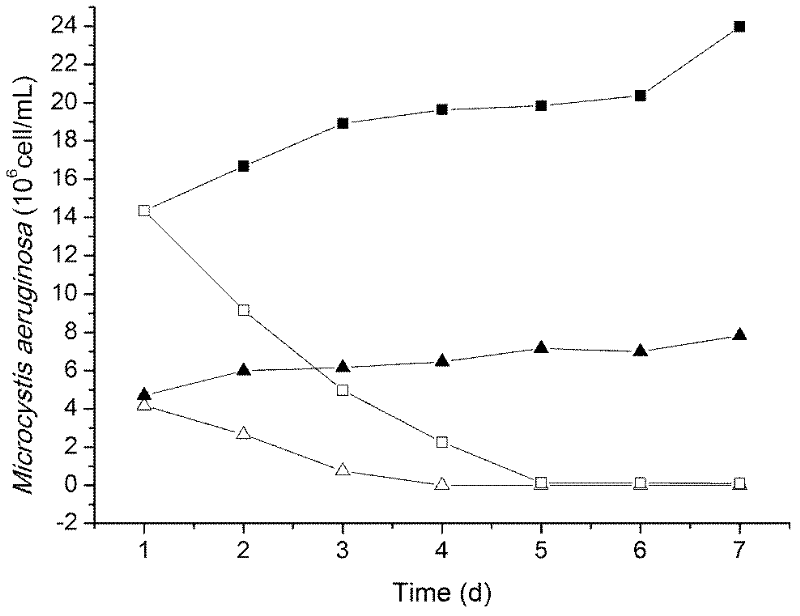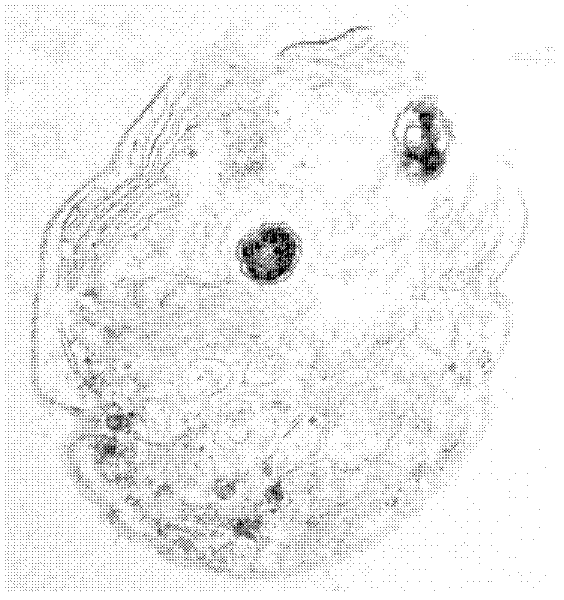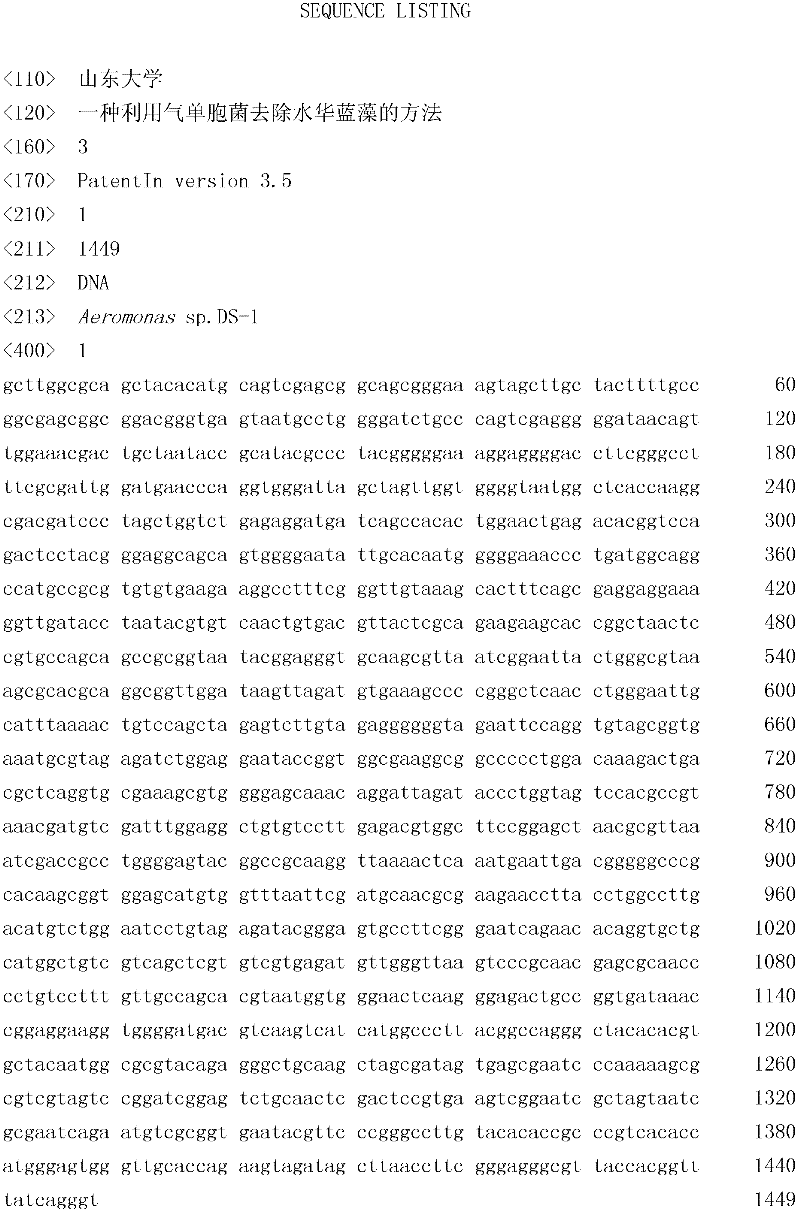Method of removing bloom-forming cyanobacteria by using Aeromonas sp.
A technology of Aeromonas and water removal, which is applied in the field of degrading Microcystis aeruginosa by bacteria, can solve the problems of retention, high-density algae pollution, and secondary pollution of algae-dissolving bacteria, so as to avoid pollution and ensure universality Effect
- Summary
- Abstract
- Description
- Claims
- Application Information
AI Technical Summary
Problems solved by technology
Method used
Image
Examples
Embodiment 1
[0038] 1. Strain screening:
[0039] In this embodiment, the artificial pond of Jinan Botanical Garden is used as the source of alginolytic bacteria isolation. After enrichment and cultivation, multiple bacterial strains are obtained by coating and repeated marking. 10 6 cells / ml) in the water sample, the temperature is 25°C, the pH value is 6.5, the algicidal effect of each strain is investigated, and the algae density reduction rate is measured after treatment for 5 days, among which the highest algal density reduction rate is screened out The highly efficient algicidal strain DS-1. After physiological and biochemical analysis and 16S rRNA gene sequence analysis, the strain was identified as Aeromonas sp. and named Aeromonas sp.DS-1. Add 20% (w / w) glycerol to the liquid culture of the strain and store it for a long time below -20°C .
[0040] Bacterial culture adopts beef extract peptone liquid medium, and its formula is: beef extract 3g, peptone 10g, sodium chloride 5g, ...
Embodiment 2
[0043] Embodiment 2, utilize bacterial strain Aeromonas sp.DS-1 to remove anabaena flos-aquae (Anabaena flos-aquae)
[0044] The strain Aeromonas sp.DS-1 was inoculated in beef extract peptone liquid medium, cultured at 30°C and 200rpm for 16h, then spread 0.5mL culture solution on a 9cm plate, and cultured at 30°C for 48h, then The bacterial lawn was scraped off, and 27mg bacterial cells (wet weight) were added to 100ml containing Anabaena (5×10 6 Cells / ml) in the water sample, the temperature is 30 °C, the pH value is 6.5, after mixing, let it stand, and mix again every morning and evening, and the removal efficiency of Anabaena can reach 100% after 7 days of treatment.
Embodiment 3
[0045] Embodiment 3, utilize bacterial strain Aeromonas sp.DS-1 to remove nodularia spumigena (Nodularia spumigena)
[0046] The strain Aeromonas sp.DS-1 was inoculated in beef extract peptone liquid medium, cultured at 30°C and 200rpm for 16h, then spread 0.5mL culture solution on a 9cm plate, and cultured at 30°C for 48h, then The bacterial lawn was scraped off, and 33mg bacterial cells (wet weight) were added to 100ml containing nodular algae (1.1×10 6 Cells / ml) in the water sample, the temperature is 30°C, the pH value is 6.5, after mixing, let it stand still, and mix again every morning and evening, and the removal efficiency of nodular algae can reach 100% after 7 days of treatment.
PUM
 Login to View More
Login to View More Abstract
Description
Claims
Application Information
 Login to View More
Login to View More - R&D
- Intellectual Property
- Life Sciences
- Materials
- Tech Scout
- Unparalleled Data Quality
- Higher Quality Content
- 60% Fewer Hallucinations
Browse by: Latest US Patents, China's latest patents, Technical Efficacy Thesaurus, Application Domain, Technology Topic, Popular Technical Reports.
© 2025 PatSnap. All rights reserved.Legal|Privacy policy|Modern Slavery Act Transparency Statement|Sitemap|About US| Contact US: help@patsnap.com



